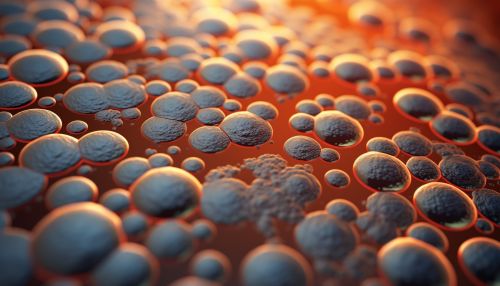Mechanisms of Microbial Biofuel Production
Introduction
Microbial biofuel production is a process that involves the use of microorganisms to convert organic matter into biofuels. This process is considered a promising alternative to fossil fuels due to its potential for renewable energy production and reduction of greenhouse gas emissions. The mechanisms of microbial biofuel production involve a series of complex biochemical reactions, which are influenced by various factors such as the type of microorganism, the feedstock, and the process conditions.
Microorganisms in Biofuel Production
Microorganisms play a crucial role in the production of biofuels. They are responsible for the conversion of organic matter into biofuels through various metabolic pathways. The choice of microorganism is critical in determining the type and efficiency of biofuel production. Some of the most commonly used microorganisms in biofuel production include yeasts, bacteria, and algae.


Biofuel Types and Production Pathways
There are several types of biofuels that can be produced by microorganisms, including bioethanol, biodiesel, biogas, and biohydrogen. Each type of biofuel is produced through a different metabolic pathway.
Bioethanol
Bioethanol is produced by the fermentation of sugars by yeasts. The sugars are derived from feedstocks such as corn, sugarcane, or cellulosic biomass. The yeast Saccharomyces cerevisiae is commonly used in the production of bioethanol due to its high ethanol tolerance and productivity.
Biodiesel
Biodiesel is produced by the transesterification of fats or oils by bacteria. The fats or oils can be derived from various sources, including vegetable oils, animal fats, and algae oils. The bacteria Rhodococcus opacus is often used in the production of biodiesel due to its ability to accumulate large amounts of lipids.
Biogas
Biogas is produced by the anaerobic digestion of organic matter by bacteria. The organic matter can be derived from various sources, including agricultural waste, food waste, and sewage sludge. The bacteria Methanobacterium thermoautotrophicum is commonly used in the production of biogas due to its ability to produce methane.
Biohydrogen
Biohydrogen is produced by the fermentation of sugars by bacteria. The sugars can be derived from various sources, including corn, sugarcane, and cellulosic biomass. The bacteria Clostridium butyricum is often used in the production of biohydrogen due to its high hydrogen productivity.
Factors Influencing Microbial Biofuel Production
Several factors influence the efficiency and yield of microbial biofuel production. These include the type of microorganism, the feedstock, the process conditions, and the metabolic engineering strategies.
Microorganism
The choice of microorganism is critical in determining the type and efficiency of biofuel production. Different microorganisms have different metabolic capabilities and can produce different types of biofuels. The choice of microorganism is often based on its biofuel productivity, tolerance to harsh process conditions, and ability to utilize a wide range of feedstocks.
Feedstock
The type of feedstock used in microbial biofuel production can significantly influence the yield and quality of the biofuel. Feedstocks rich in sugars or fats are often preferred due to their high energy content. However, the use of non-food feedstocks such as agricultural waste or algae is gaining interest due to sustainability concerns.
Process Conditions
The process conditions, including temperature, pH, and nutrient availability, can significantly influence the efficiency of microbial biofuel production. Optimal process conditions can enhance the metabolic activity of the microorganisms and increase the yield of biofuel.
Metabolic Engineering
Metabolic engineering strategies can be used to enhance the biofuel productivity of microorganisms. These strategies involve the manipulation of the microorganism's metabolic pathways to increase the production of biofuel precursors and reduce the production of unwanted byproducts.
Future Perspectives
Microbial biofuel production holds great promise for the sustainable production of renewable energy. However, several challenges need to be addressed to make this technology commercially viable. These include improving the efficiency and yield of biofuel production, reducing the cost of feedstocks, and addressing sustainability concerns.
